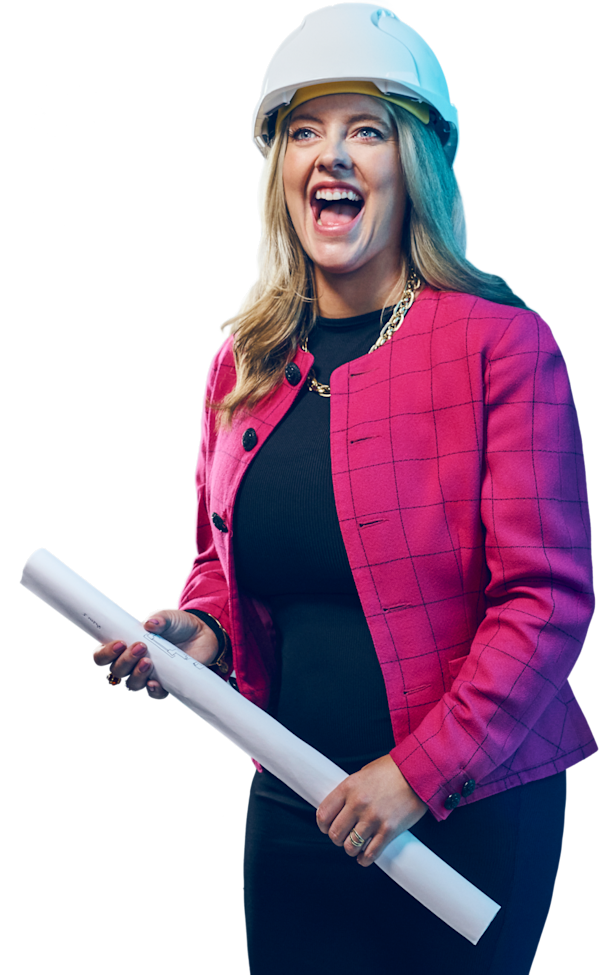
Equipment leasing
It's not always clear whether it is more cost-effective to buy or rent equipment, and each business and type of equipment will be different, but if you choose to lease, you can opt for an operating lease, a finance lease, or a contract hire.
What is equipment leasing?
Purchase via a business loan or lease it
If a business needs equipment to operate, it will either have to purchase via a business loan or lease it.
Rent the equipment for a fee
Under an equipment lease, a business owner will rent the equipment for a fee.
Keep or return
At the end of the lease, there is an option to either keep the equipment (if paid up in full) or return it for a newer model, depending on the type of lease.
Types of leasing options
Purchase equipment
Small business owners looking to purchase equipment for their business won’t have to pay cash for it upfront.
Cash upfront
To procure the latest equipment without paying a large amount of cash at once, you have three finance solutions:
Three finance solutions
Operating lease, finance lease, and contract hire.
What is an operating lease?
Use of equipment but not the ownership
If a business owner wants to have use of equipment but not the ownership then an operating lease is the best option.
Timeframe
The lender gives the business owner the use of the equipment over an agreed timeframe, with no option to outright purchase the asset at the end of the lease agreement.
Sell the equipment
Operating leases usually run for less than the useful life of the equipment, so the lender will expect to be able to sell the equipment at the end of the lease (residual value).
Benefits of operating lease for business equipment
Greater flexibility
Allow companies greater flexibility to upgrade all types of equipment, which reduces the risk of obsolescence.
Maintenance costs
Risks remain with the lender as the lessee is only liable for the maintenance costs.
Tax deductible
Operational expenses are fully tax deductible.
Repayment
Only one monthly repayment.
No balloon payment
No balloon payment, so it is relatively easy to bear the cost of a vehicle.
How does Funding Options work?
Tell us how much you need
We’ll ask a few questions about your business and the reason for your loan.
Get quotes instantly
Our smart technology will compare quotes from up to 120+ lenders to help you find the ideal business loan.
Apply for a Business Loan 🎉
We'll be there to guide you through every step of the process.

Trusted by over 21 customers
What is a finance lease?
Without the high upfront costs
A business finance lease is a good way to get the equipment you need without the high upfront costs. The leasing company buys the asset and rents it to you for an agreed lease period.
Rent
The leasing company buys the asset and rents it to you for an agreed lease period.
Rewards of ownership
In contrast to an operating lease, all of the risks and rewards of ownership of the equipment fall to the lessee.
How a finance lease works for equipment
Commercial rental agreement
You can think of a finance lease as a commercial rental agreement, and the following steps are typical:
Step 1
The business owner selects equipment that they need for their business
Step 2
The lender purchases the equipment
Step 3
The lender and business owner enter into a legal contract, which gives the business owner the right to use the equipment for a set amount of time
Step 4
The business owner makes monthly repayments in return for use of the equipment
Step 5
The lender receives the cost of the asset plus interest
Step 6
At the end of the lease agreement, the business owner is given the option to take ownership of the equipment
Benefits of a finance lease for equipment
Cash flow
No cash upfront, lower monthly repayments, and better for cash flow than purchasing
Tax benefits
Tax benefits (payments can be expensed rather than capitalised and depreciated)
Quick approval
Quick approval (24-hours), preserve capital for use in company growth initiatives, and no technological obsolescence
Estimate your costs today
If you're ready to take your business to the next level, use our business loans calculator to get an idea of what you can afford.
Want to understand the cost of your loan?
Use our business loan calculator below to find out how much you can borrow to take your business to the next level.
Calculations are indicative only and intended as a guide only. The figures calculated are not a statement of the actual repayments that will be charged on any actual loan and do not constitute a loan offer.
Monthly payments
-
Monthly interest
-
Total interest
-
Length of loan
-
Total cost of loan
-
Financial product information
Representative example*
• 7.63% APR Representative based on a loan of £50,000 repayable over 24 months.
• Monthly repayment of £2,252.94. The total amount payable is £54,070.56
*Some lenders may apply fees during the application process, please note that these are set and provided by these entities.
Annual Percentage Rates
Rates from 2.75% APR
Repayment period
1 month to 30 years terms
Learn more about equipment leasing
What is a contract hire?
One of the easiest ways to rent equipment is the all-inclusive contract hire lease. It combines all of the benefits of an operative lease, but with additional maintenance packages, for a fixed monthly price. Once an upfront rental fee is paid, you can benefit from lower fixed monthly payments, and can return the equipment at the end of the lease agreement. It’s important to note that similar to a finance lease, you can offset the rental fees against taxable profits, as they are also considered a business expense.
Benefits of a contract hire
Easy on your budget due to low rental payments
Affordable pricing (lower upfront costs)
Predictable fixed-term and fixed-interest payments
Tax benefits via rental fees lowering taxable profits
Easier to budget as contract hire includes maintenance for running costs
Should I buy or lease equipment?
So, what are the benefits of leasing vs. buying equipment?
Buying pros:
Full ownership of the equipment
Lifetime cost is cheaper
Asset on your balance sheet
Depreciation allowed on equipment
Full control of equipment
Can sell the equipment after using it
Leasing pros:
No upfront payment is required
Terms are more flexible (e.g., can buy out lease)
Can test out equipment before committing
Maintenance costs included
Payments are tax-deductible
More accessible with bad credit businesses
Easier to upgrade after your lease expires
Easier to acquire more quickly
Buying cons:
Need more cash or credit upfront
Cannot always test out the equipment before purchasing
Responsible for maintenance and replacements
Risk being stuck with outdated equipment
Increase liabilities on the balance sheet, which could prevent you from borrowing more money
Leasing cons:
You don’t own the item while leasing it
Higher lifetime costs
Depreciation isn’t tax deductible
Obligation to stick with the lease due to contractual obligations
Break clause for ending the lease contract before the agreed date
Operating leases may appear as a liability on your balance sheet
Business loans
Every business has different needs and requires a level of support that facilitates further business growth. At Funding Options, we provide SMEs access to the most extensive range of business loans, business lending and alternative finance on the market.
Through our innovative technology, Funding Cloud™, we can quickly and efficiently introduce applicants to providers, each regulated by the financial conduct authority. Since we started in 2011, we’ve helped more than 11,000 businesses get the finance they need quickly and easily. That adds up to over £0.6B in funding for businesses in the UK and the Netherlands.
Please note that the information above is not intended to be financial advice. You should seek independent financial advice before making any decisions about your financial future.
It’s important to remember that all loans and credit agreements come with risks. These risks include non-payment and late-payment of the agreed repayment plan, which could affect your business credit score and impact your ability to find future funding. Always read the terms and conditions of every loan or credit agreement before you proceed. Contact us for support if you ever face difficulties making your repayments.
Funding Options, now part of Tide, helps UK firms access business finance, working directly with businesses and their trusted advisors. Funding Options are a credit broker and do not provide loans directly. All finance and quotes are subject to status and income. Applicants must be aged 18 and over and terms and conditions apply. Guarantees and Indemnities may be required. Funding Options can introduce applicants to a number of providers based on the applicants' circumstances and creditworthiness. Funding Options will receive a commission or finder’s fee for effecting such finance introductions.
